The Brownlow Bloods
Coined the ‘The Brownlow Factory’ the Swans have an unprecedented level of success in achieving the games highest individual honour. 14 medals won by 11 individuals.
Adam Goodes - 2003, 2006
In 2003, for the second time in VFL/AFL history, the Brownlow Medal was split three ways. Sydney’s Adam Goodes, Adelaide's Mark Ricciuto, and Collingwood's Nathan Buckley shared the top honour with 22 votes each.
Goodes joined Bob Skilton in the Swans record books as the only player to have received more than one Brownlow Medal, and only one of 15 across the entire competition.
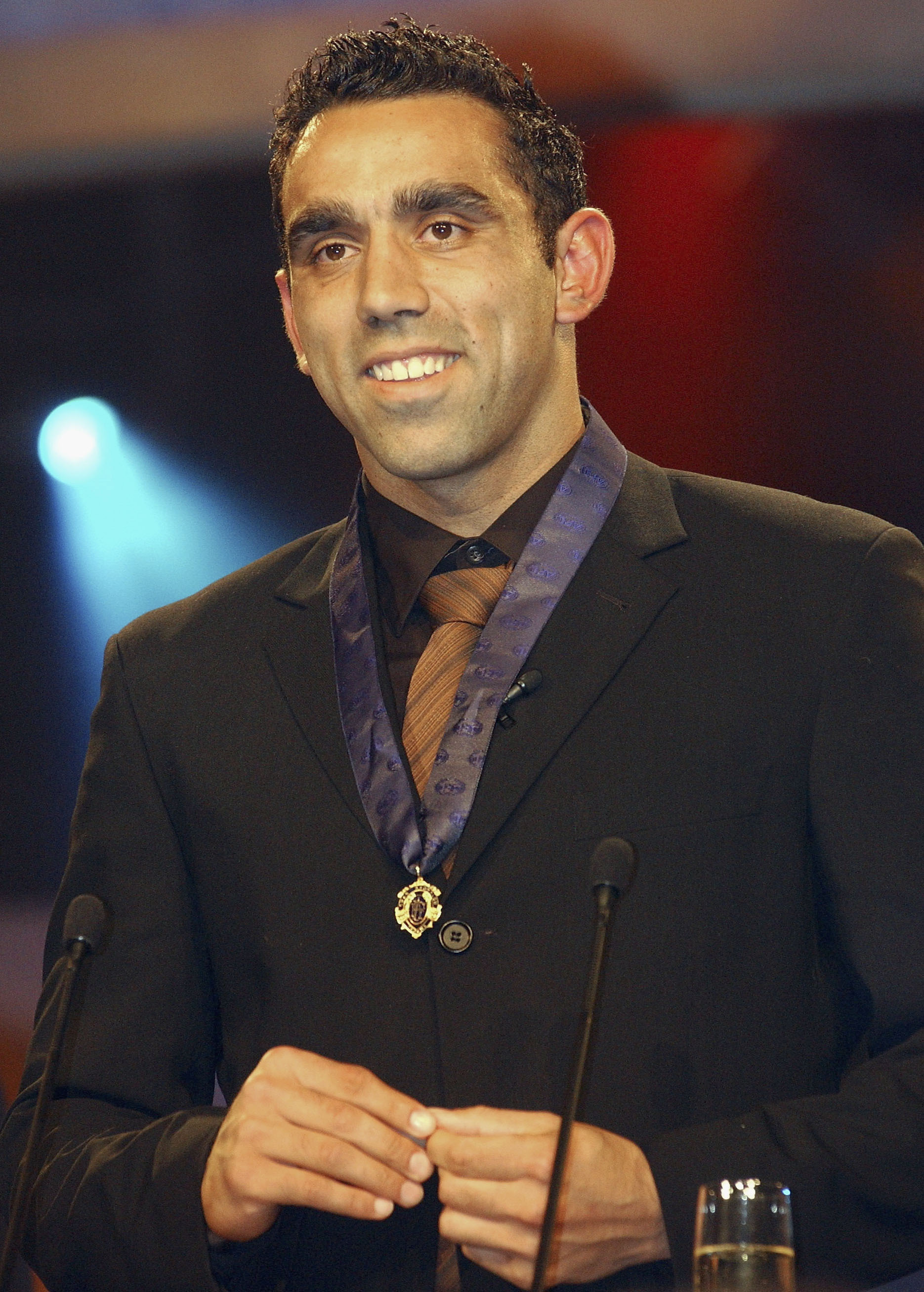
Paul Kelly – 1995
The man known as 'Captain Courageous' collected 21 votes to win the 1995 Brownlow Medal in a runaway victory from the ineligible Darren Jarman (Hawthorn) and Gary Hocking (Geelong).
In his acceptance speech Kelly dedicated the win to coach Ron Barassi and '91 Club Champion Barry Mitchell, "who took me under his wing and taught me what AFL football is all about".
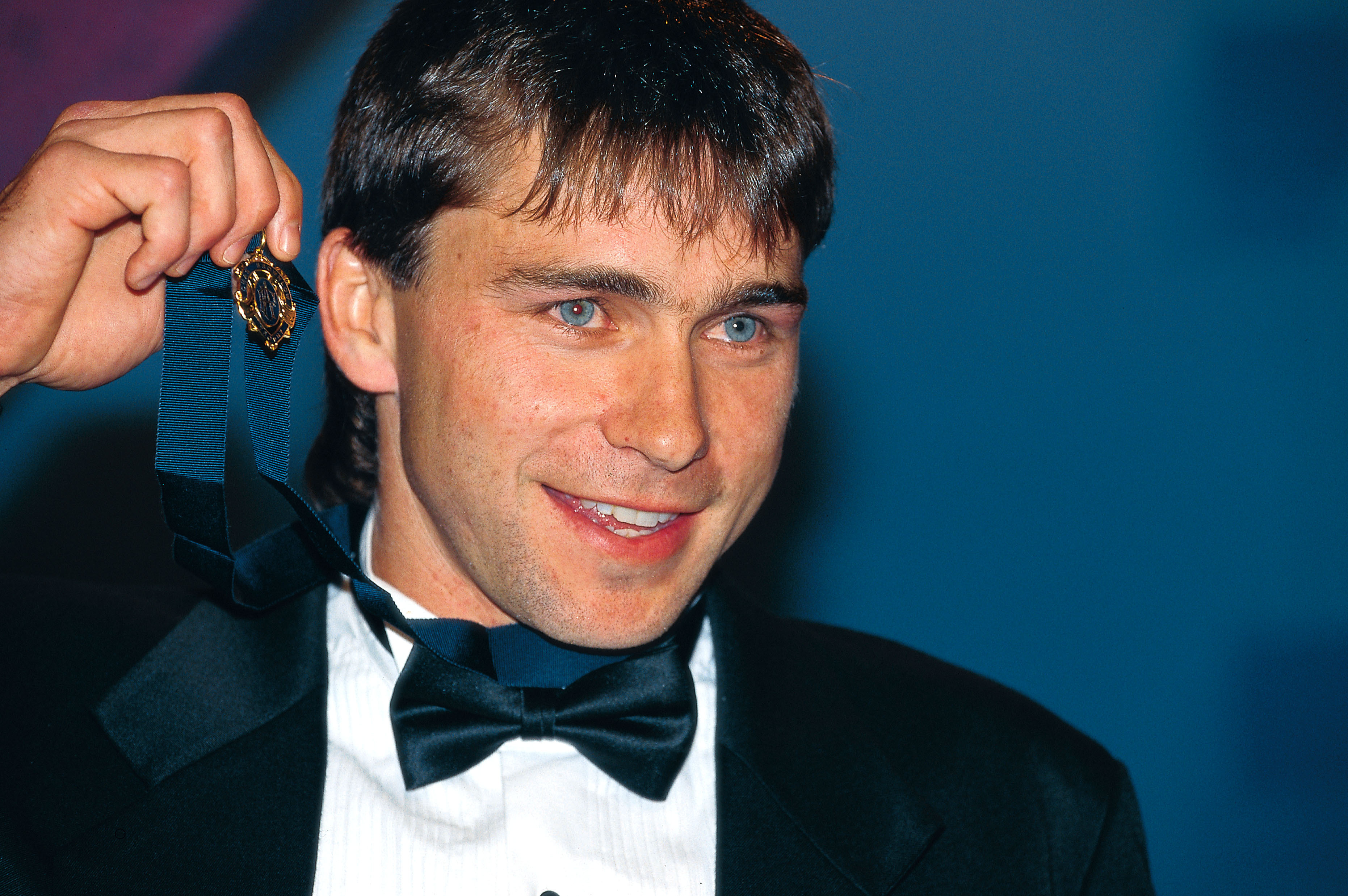
Gerard Healy – 1988
After playing 130 games for Melbourne, Healy moved to the Swans for the 1986 season and quickly made a name for himself in the red and white. Two years later he was awarded a Brownlow Medal after collecting 20 votes ahead of Essendon's Simon Madden and Hawthorn's Jason Dunstall (16 votes).
Healy played 81 games for the Swans, winning three Bob Skilton Medals and was later inducted into the Swans Hall of Fame and Team of the Century.
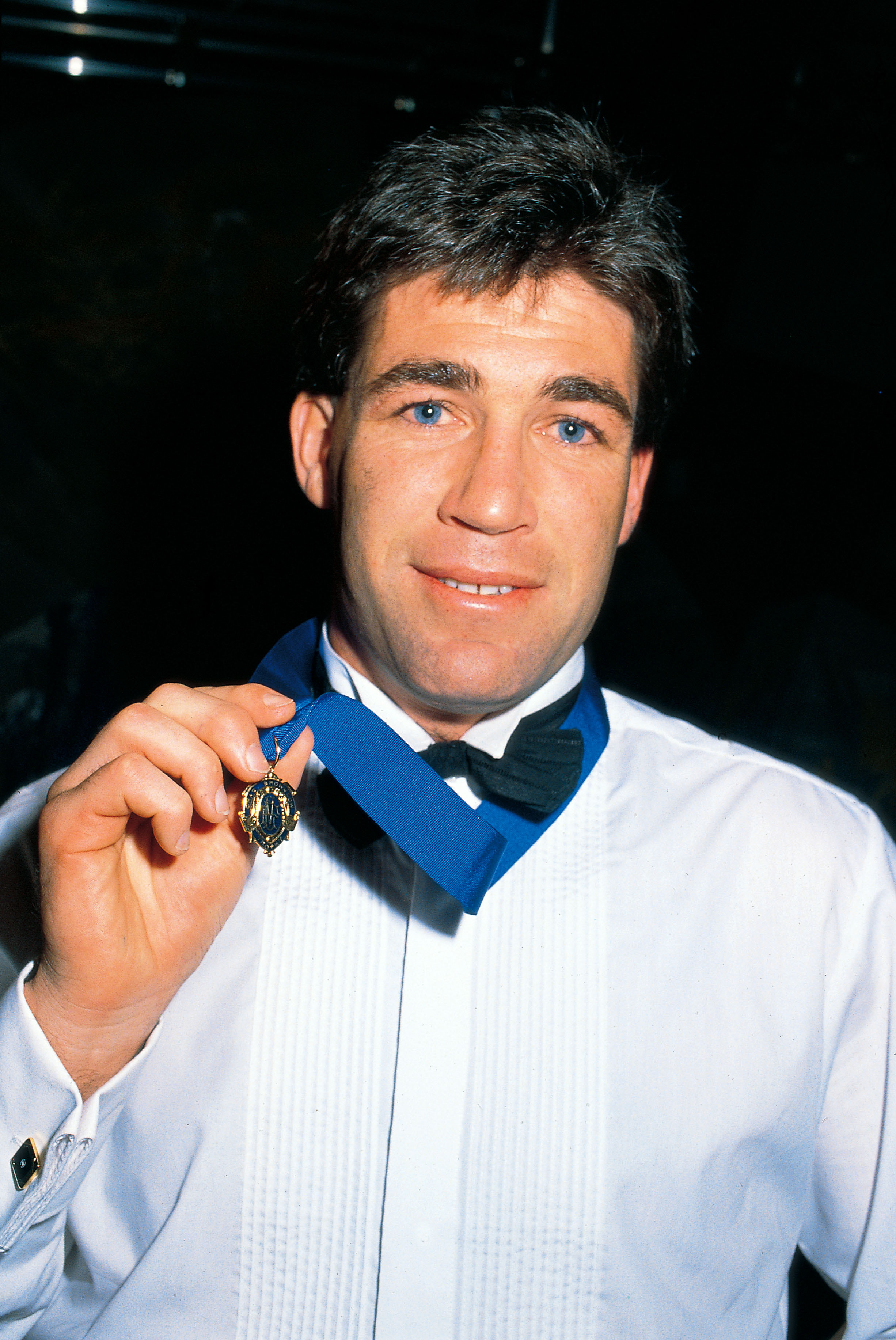
Greg Williams – 1986
After his first season with the Swans, Williams tied with Hawthorn’s Robert Di Pierdomenico on 17 votes to win the prestigious award.
He went on to play 107 matches across six seasons for the Swans before moving to Carlton. Williams was later inducted into the Swans Hall of Fame and named a Team of the Century member at both Sydney and Carlton.
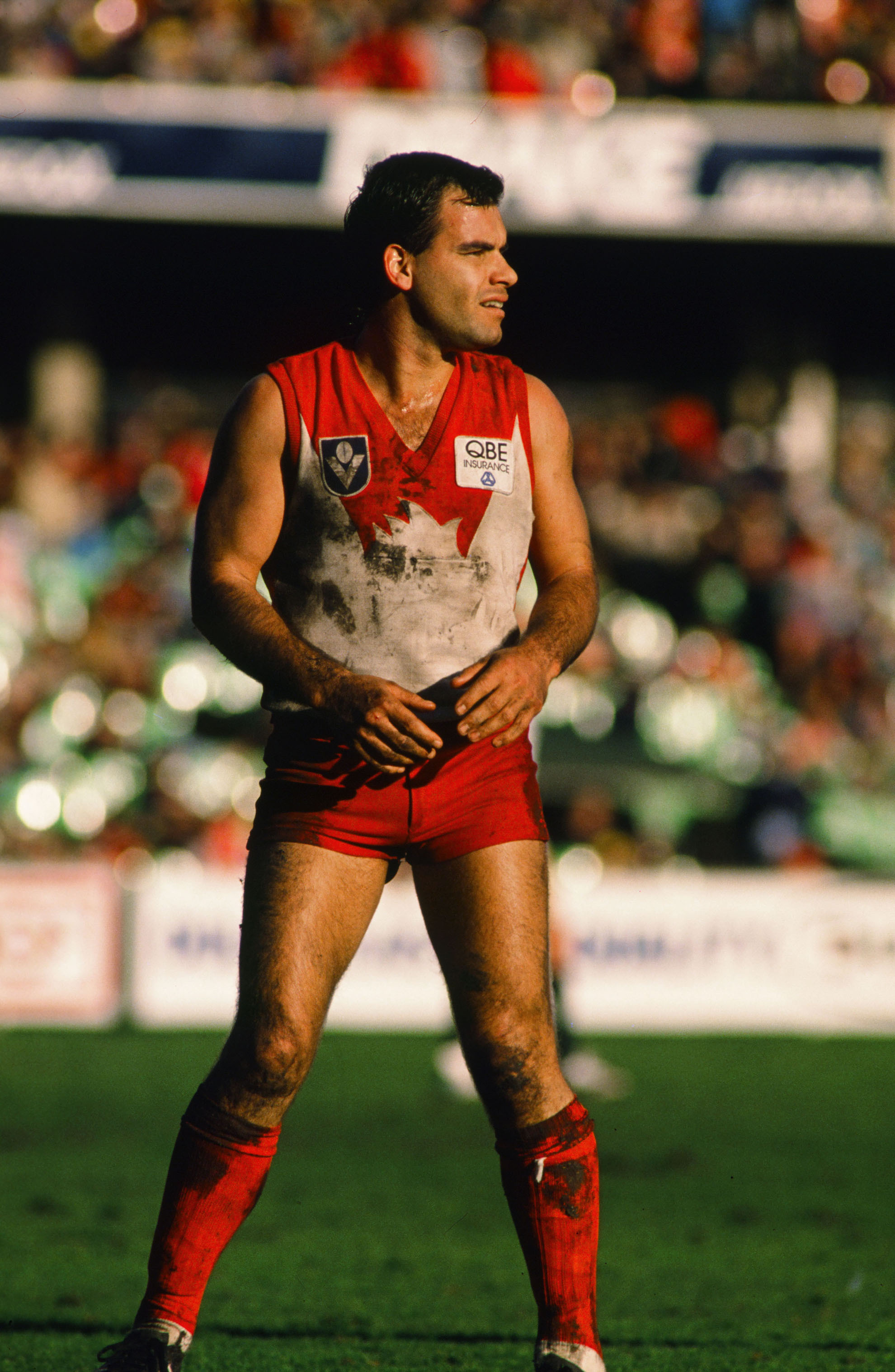
Barry Round – 1981
Barry Round is the oldest winner of a Brownlow Medal, having claimed the 1981 prize at the age of 31 years and 238 days. That season was the first time two medals were awarded for a tie with Fitzroy's Bernie Quinlan on 22 votes.
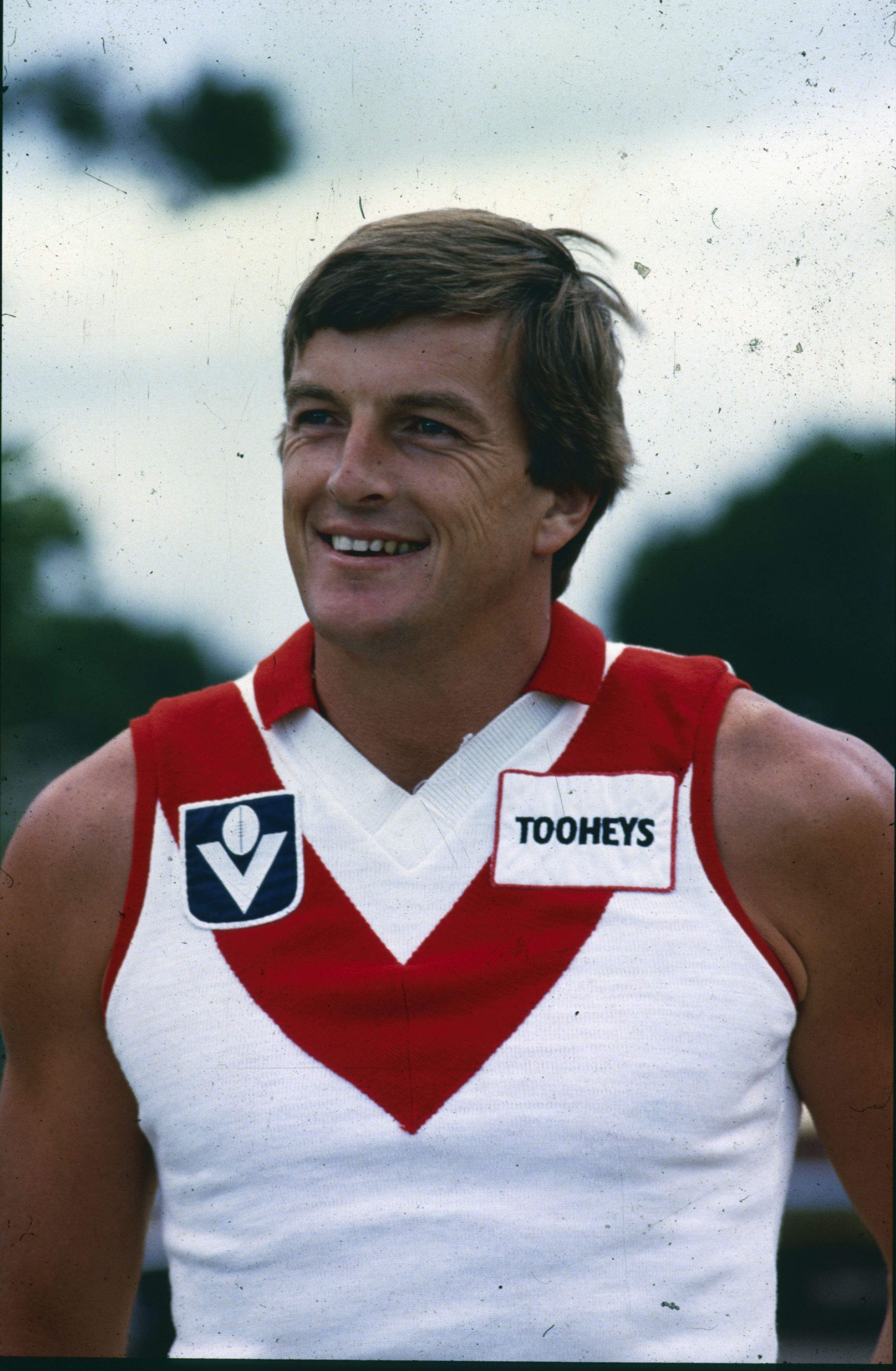
Graham Teasdale – 1977
Graham Teasdale polled 59 votes to win the 1977 Brownlow Medal, which remains to this day the most votes polled in a single season. The voting system in 1977 and the previous year had both field umpires awarding votes, resulting in higher vote tallies than other years.
Teasdale played for three different clubs in a career spanning 141 games, 121 of those were spent at South Melbourne. Teasdale also claimed South's Club Champion Award in '77.
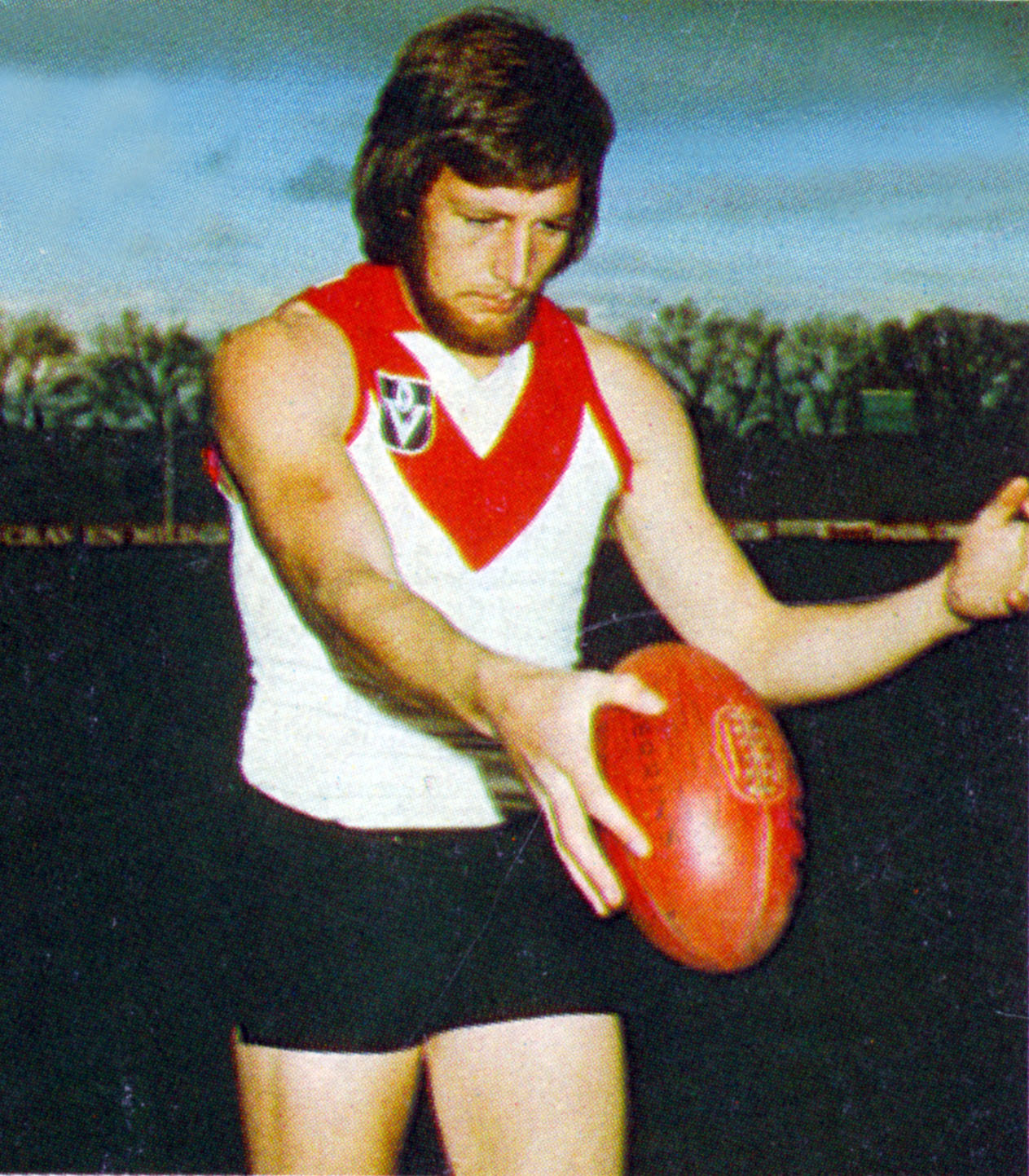
Peter Bedford - 1970
The first Brownlow Medal count to be televised saw Peter Bedford (25 votes) crowned the winner ahead of Gary Dempsey (21 votes), the highest polling athlete in the award's history.
At the end of a career spanning 178 games for the Swans, between 1968 and 1976, Bedford would become a five-time Club Champion and three-time leading goal-kicker.
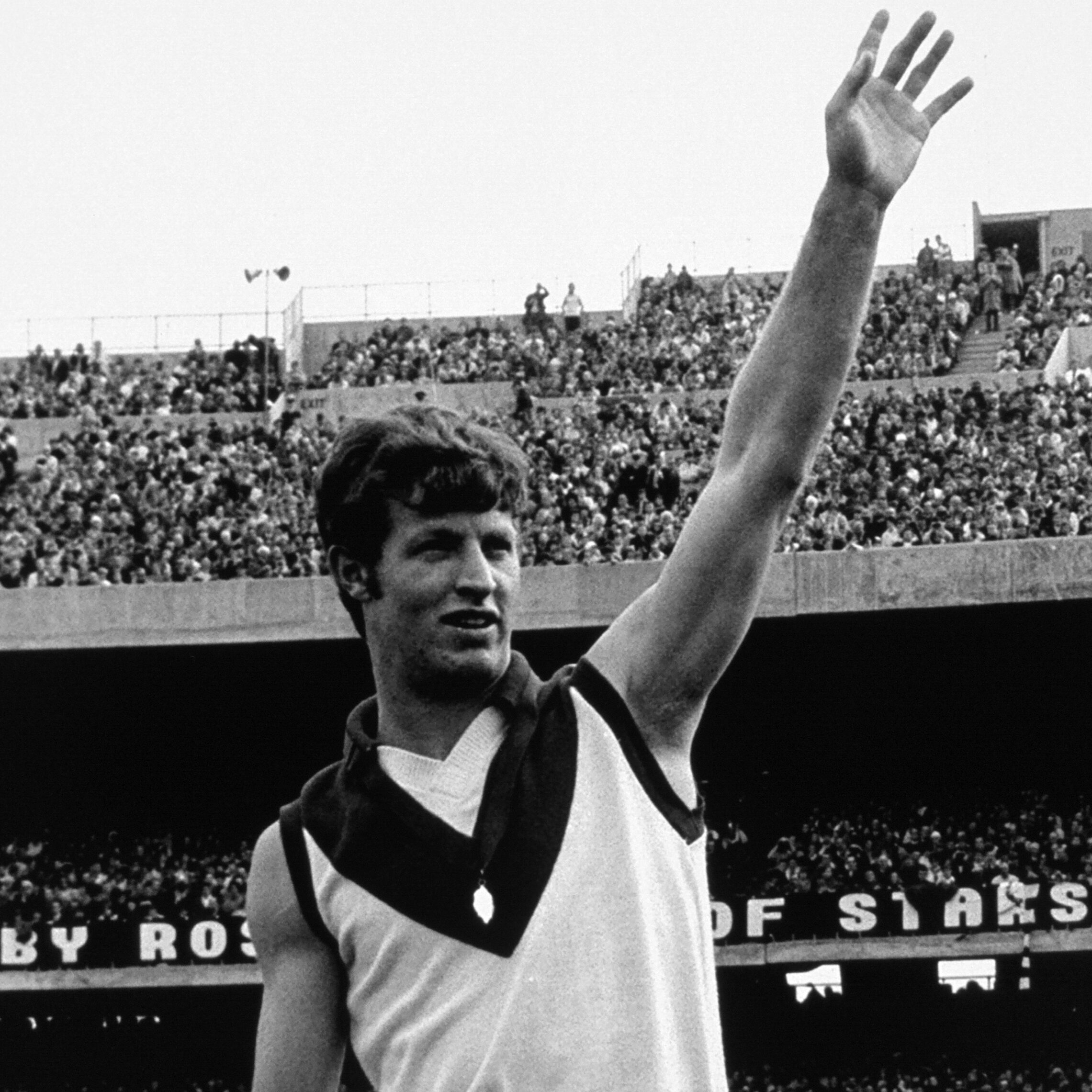
Bob Skilton - 1959, 1963, 1968
Bob Skilton is one of only four players in VFL/AFL history to win the Brownlow Medal on three occasions. Skilton tied with St Kilda's Verdun Howell in 1959, won the award outright in 1963 ahead of Geelong's Polly Farmer and St Kilda's Darryl Baldock, before taking home the 1968 Brownlow Medal with a convincing 24 votes ahead of Geelong's Denis Marshall who received 21.
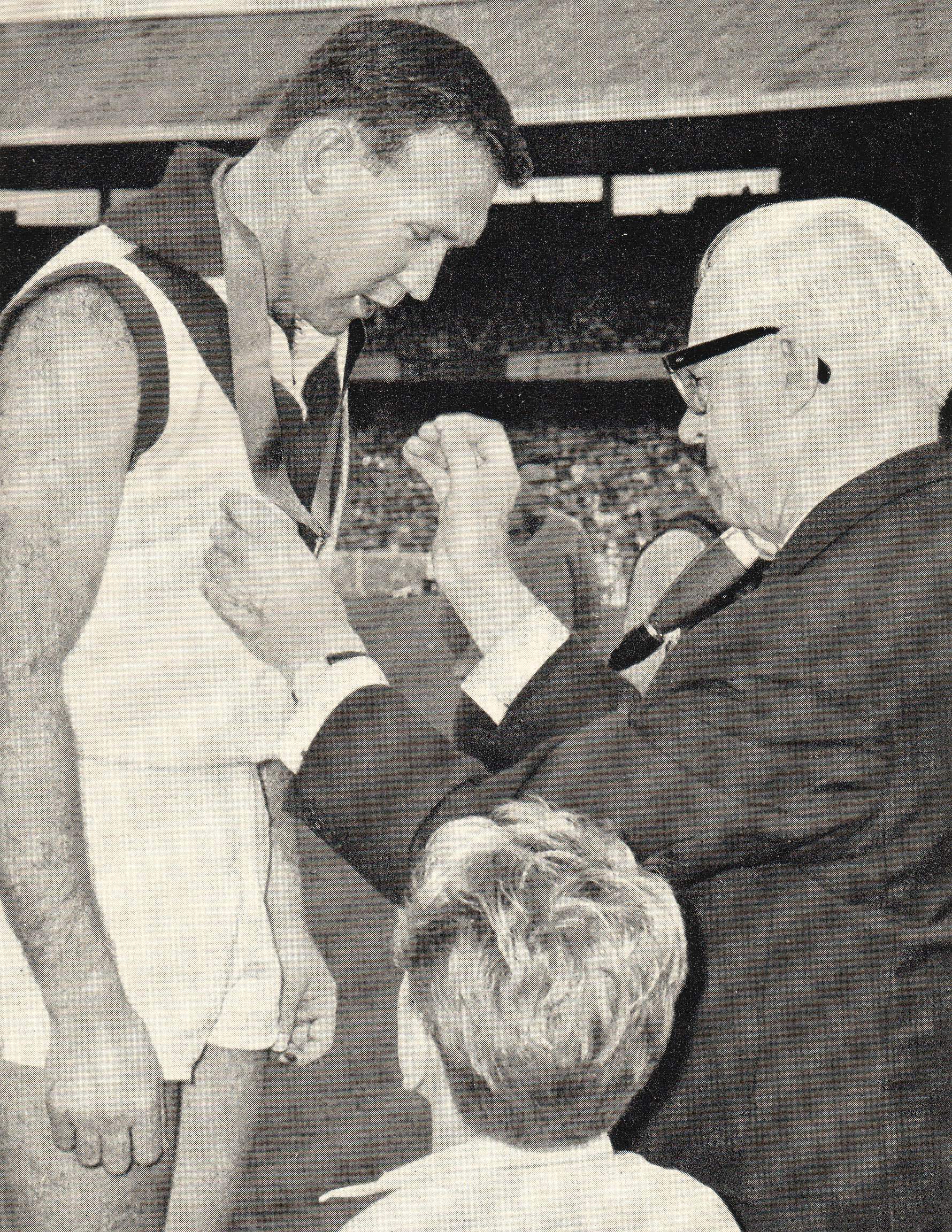
Fred Goldsmith – 1955
Fred Goldsmith was the first ever, and to this day the only, specialist full-back to win the Brownlow Medal. However, after 1956, Goldsmith moved to the forward line where he played for the remainder of his career. In 1957, Goldsmith led the club's goal kicking with 43 goals.
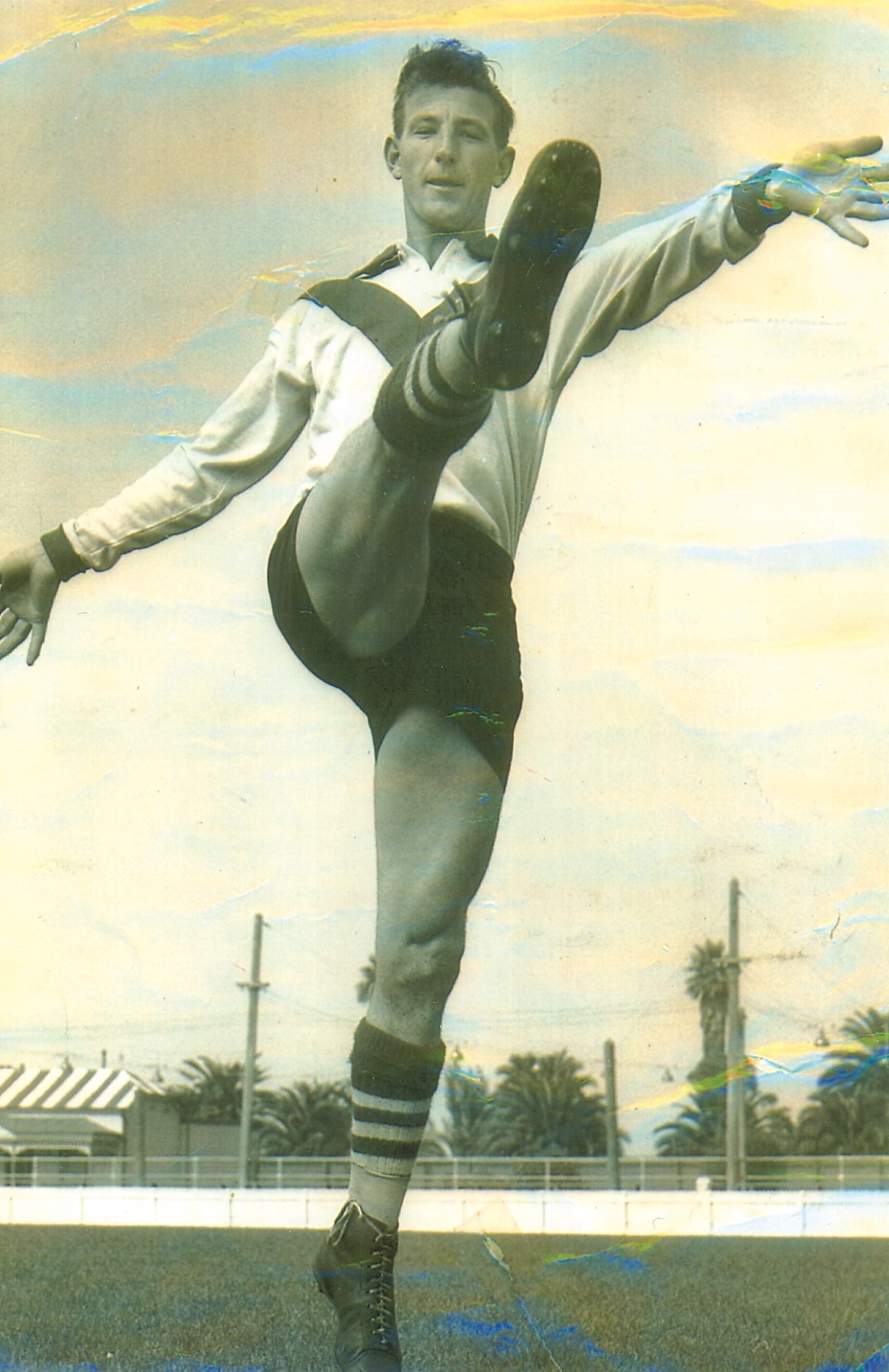
Ron Clegg – 1949
Already a Club Champion at South Melbourne, Ron Clegg went on to win the 1949 Brownlow Medal the following season. He tied with Hawthorn's Colin Austen on 23 votes. Two years later, Clegg went on to place runner-up in the 1951 Brownlow.
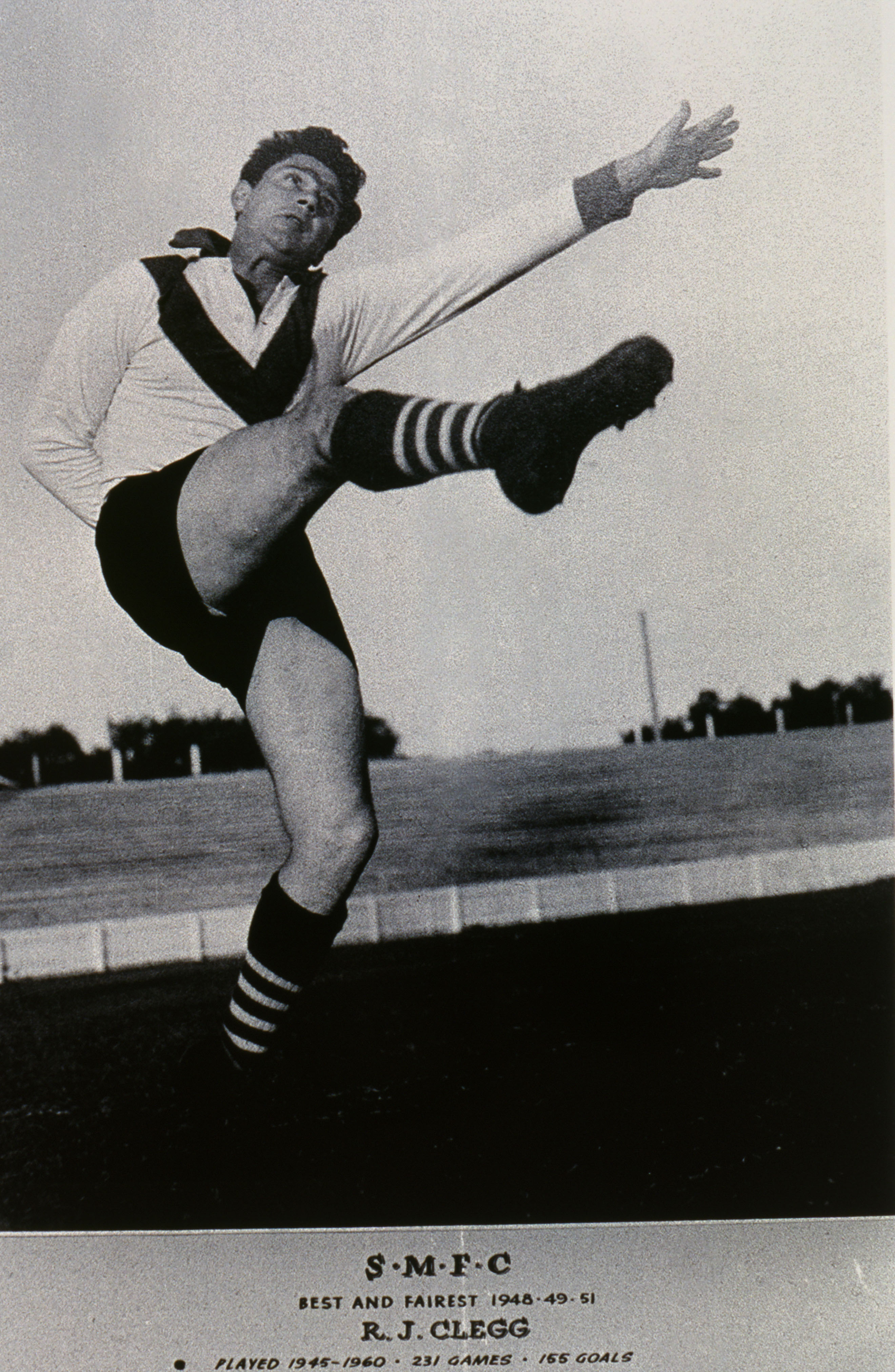
Herbie Matthews – 1940
Herbie Matthews had two Club Champion Awards under his belt before breaking through with a Brownlow Medal win in 1940, sharing the award with Collingwood's Des Fothergill on 32 votes.
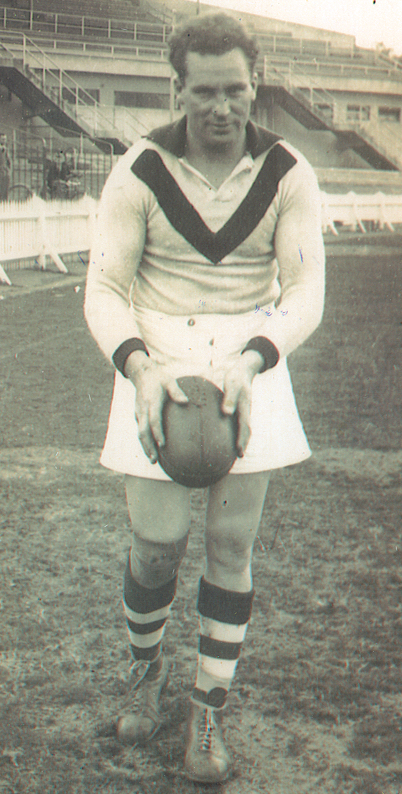
My items
You have not looked at any packages recently.
There are no featured packages.


